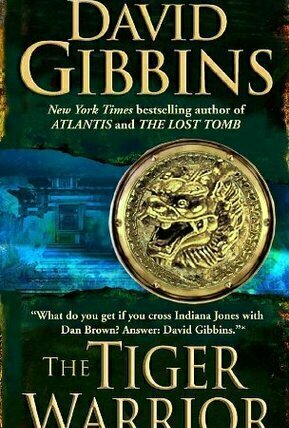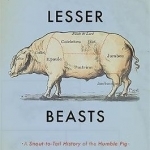
Lesser Beasts: A Snout-to-Tail History of the Humble Pig
Book
Unlike other barnyard animals, which pull plows, give eggs or milk, or grow wool, a pig produces...
Pulcinellopaedia Seraphiniana
Book
From the intriguing mind behind Codex Seraphinianus comes this beautifully illustrated tribute to...

Theodora: Actress, Empress, Saint
Book
Two of the most famous mosaics from the Byzantine period, from the church of San Vitale in Ravenna,...
Phil Leader (619 KP) rated The Tiger Warrior (Jack Howard #4) in Books
Nov 26, 2019
This might sound far-fetched but Gibbins knows his archaeology and comes up with a plausible (if tenuous) story to make this work. The story is then taken up at the end of the 19th century in India when Howard's great great grandfather is part of the British Royal Engineers Corps trying to push roads - and hence British rule - into the jungle. He stumbles across an old temple that contains a secret.
The story roves around the the world showing us some incredible - but real - historic sites across Asia. Genuine books and records are quoted to back up the (modern day) Howard's quest to find out what happened - to both the Romans and his antecedant. Everything has very solid historical underpinnings with the more fantastic elements of the story cleverly weaved between them.
I did enjoy the book but it wasn't an unqualified success. There isn't really much menace, threat or drama in what happens to Jack Howard and his associates as they follow the past (told in a series of flashback chapters), uncovering clues one step at a time. Yes there are 'bad guys' but they seem quite ineffectual and the 'big boss' is in fact never seen at all but only mentioned in passing towards the end of the book. Judging by the notes from the author this is a very personal book - the character and story of Jack's ancestor in India is very much based on his own forebear - and this limits the scope for making the pieces fit into a pleasing whole.
That isn't to say I didn't enjoy reading it - as a subtle way of introducing surprising archaeological facts it works well (I didn't know that Ancient Rome traded with India but apparently so) and some of the set pieces are gripping to read. I will certainly be finding another Jack Howard book to read, but I suspect this was too personal a project for my first taste, which is s shame.
Roman Portable Sundials: The Empire in Your Hand
Book
In an unscientific era when maps were rarities, how did ancient Romans envisage their far flung...
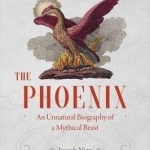
The Phoenix: An Unnatural Biography of a Mythical Beast
Book
Arising triumphantly from the ashes of its predecessor, the phoenix has been an enduring symbol of...
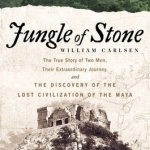
Jungle of Stone: The Extraordinary Journey of John L. Stephens and Frederick Catherwood, and the Discovery of the Lost Civilization of the Maya
Book
New York Times Bestseller (Expeditions) "Thrilling...A captivating history of two men who...
Ivana A. | Diary of Difference (1171 KP) rated 100 Speeches that roused the world in Books
Oct 5, 2020
<a href="https://diaryofdifference.com/">Blog</a>; | <a href="https://www.facebook.com/diaryofdifference/">Facebook</a>; | <a href="https://twitter.com/DiaryDifference">Twitter</a>; | <a href="https://www.instagram.com/diaryofdifference/">Instagram</a>; | <a href="https://www.pinterest.co.uk/diaryofdifference/pins/">Pinterest</a>;
<img src="https://i1.wp.com/diaryofdifference.com/wp-content/uploads/2020/09/Book-Review-Banner-86.png?resize=768%2C432&ssl=1"/>;
<b><i>Boy, oh boy, do I have mixed feelings about 100 Speeches That Roused the World by Colin Salter.</i></b>
The reason I picked up this book is because I have always been in love with speeches and orators. I believe that the ability to speak in front of an audience is a very powerful skill, and I admire it as such. Many great leaders and many successful people use this skill to make people listen and act in a way they want them to. That is where the true art is, and I really admire this aspect. The fact that you can listen to two or more people tell you the same thing, and only one being able to convince you to do something or believe in something they say is a true gift.
Which takes us to the second reason I picked this book up. To find out more about the people who had this ability in history and made a difference in one way or another. And for the most part, I was pleased. There are speeches of many great (and not so great) leaders out there, speeches of people that made breakthroughs in their fields, people who fought for their rights.
<b><i>But there was a pattern I noticed in these 100 speeches.</i></b>
Most of these speeches were either from the UK or USA. And most of them were presidents, prime ministers,royalty or leaders in any other way. And all their speeches were speeches during the wars. Telling their people to fight for their nations.
And I have nothing against those speeches. They were perfect for their time and they did their purpose at the time. What I had a problem with is that there were so many more important times in history when a speech was made and it represented a change.
What about all the speeches that philosophers have given in ancient Rome and Greece? For Rome, where is Julius Caesar’s speech to the senate? For Greece, how about the movement for freedom of speech? What about the speeches during humanism and renaissance? What about some of the groundbreaking speeches that scientists have given over the years?
I was a bit disappointed with the format of the book as well, as the speeches were mostly short paragraphs, followed by a full page of the author’s notes, mostly quoting the same speech again. It was very helpful to know the background of how the speech made a difference in the world, but when most of those speeches didn’t really make any difference, and I was involved in a history lesson of the most important wars in history, it wasn’t much of a fun read.
<b><i>To conclude, this book wasn’t what I was looking for, both format and content wise. The 100 Speeches mentioned in this book didn’t do enough justice for me. I believe that title is misleading, but I can also understand that some people can still learn a lot by reading it.</i></b>
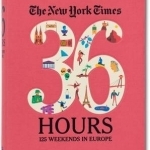
The New York Times, 36 Hours: Europe: Dream Weekends with Practical Itineraries from Paris to Perm
Book
(Re)discovering Europe. Dream weekends with practical itineraries from Paris to Perm. Culture,...
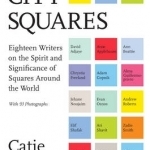
City Squares: Eighteen Writers on the Spirit and Significance of Squares Around the World
Book
In this important collection, eighteen renowned writers, including David Remnick, Zadie Smith,...

